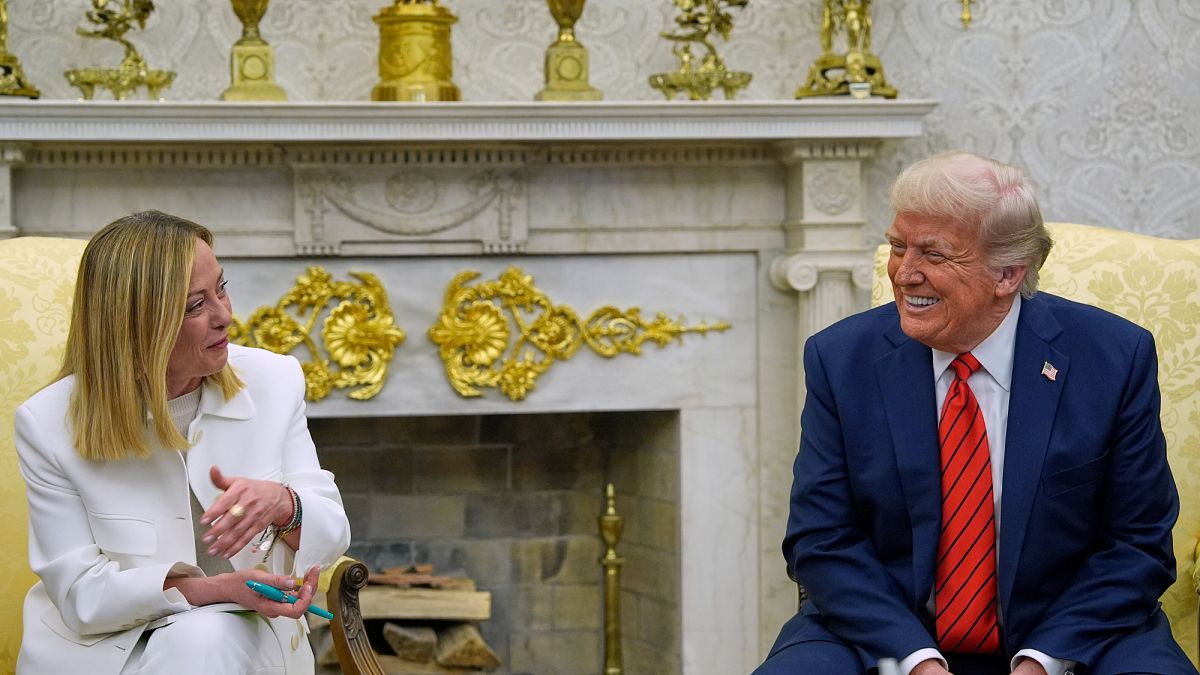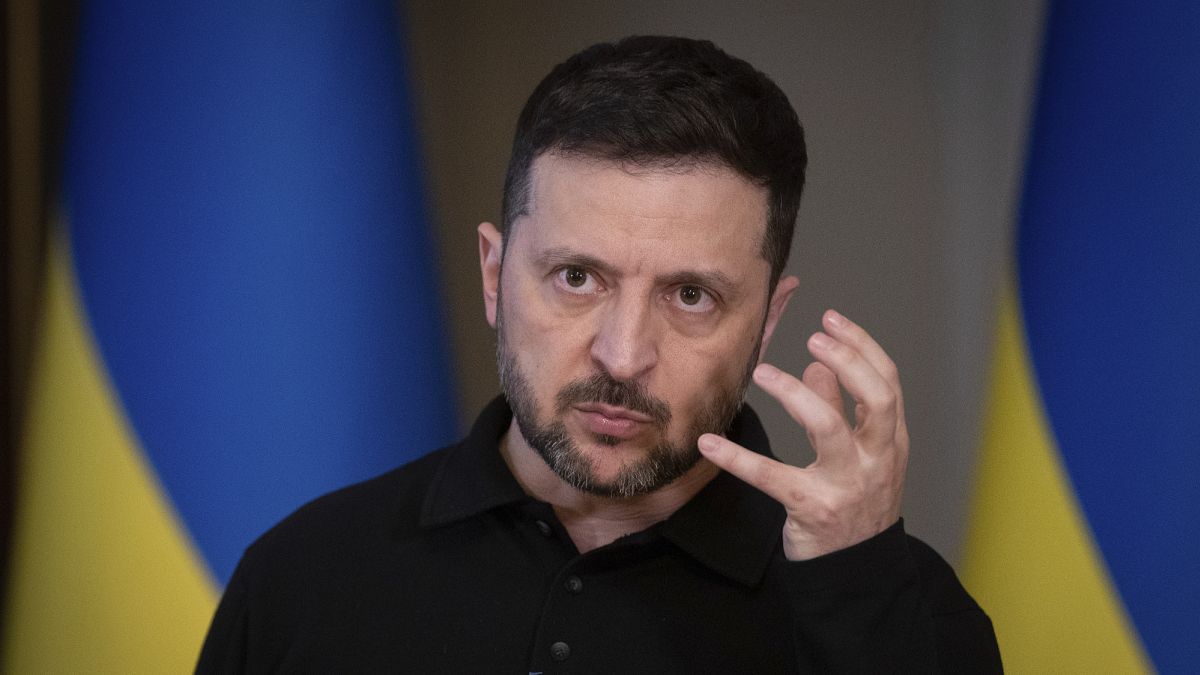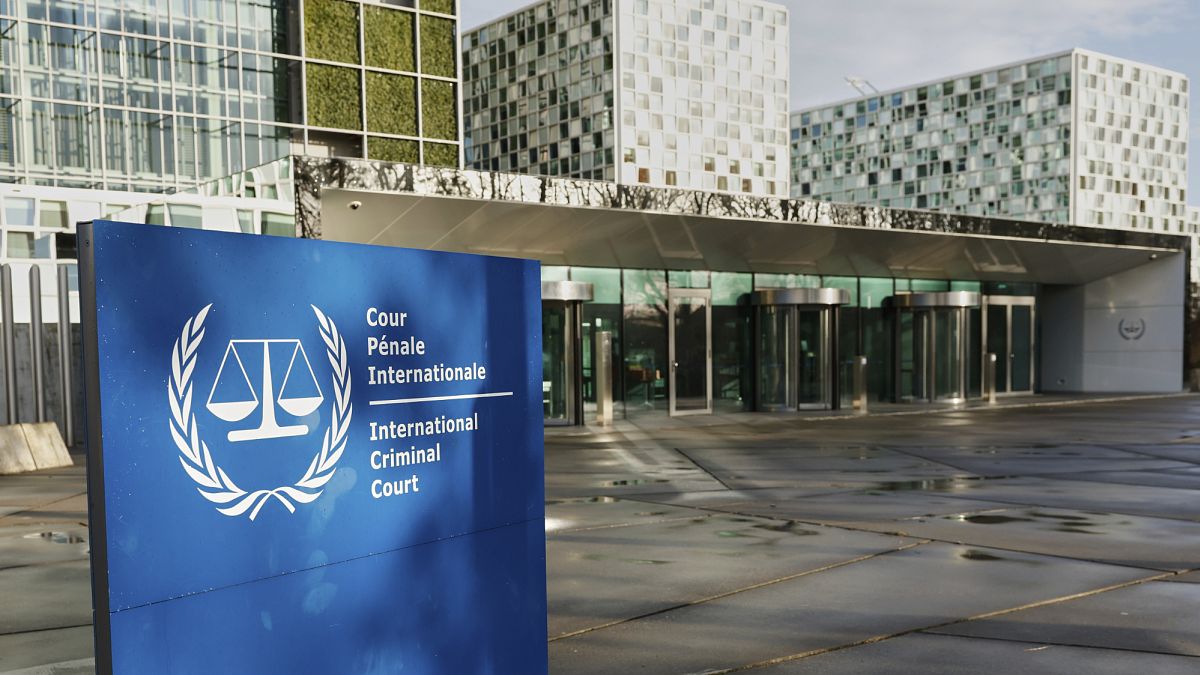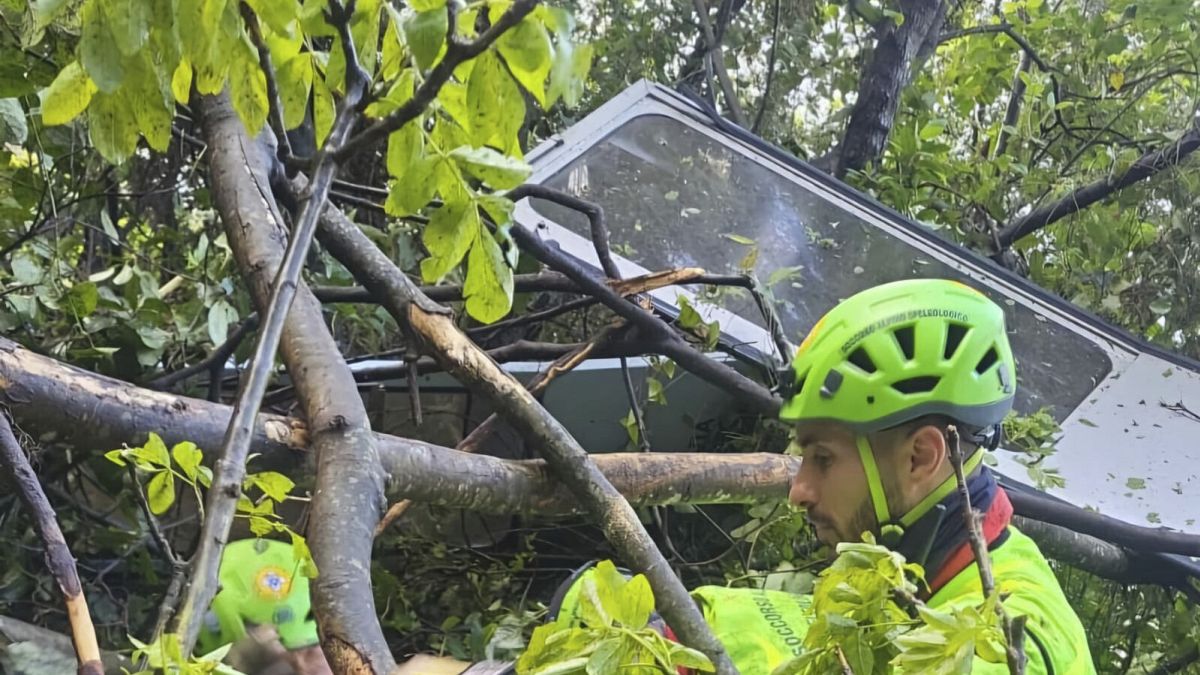'Azerbaijan cannot impose any kind of solution' COP29's host tells Euronews, adding that the only way forward at the climate summit is through consensus.
The foreign policy advisor to Azerbaijan's president has told Euronews that Azerbaijan is only one of 198 participants and all of them "have their own responsibilities and their own objectives."
"Azerbaijan cannot impose any kind of solution or any kind of decision to the other countries," Hikmet Hajiyev said on Saturday, on the sidelines of the summit in the capital Baku.
Many critics have suggested that Azerbaijan, as an oil and gas rich state, was always going to be an unsuitable host for COP29.
"Azerbaijan doesn’t deny that Azerbaijan is an oil and gas producer country but we should not be treated just on oil and gas facts, we should be treated only on how we are using our resources for the green transformation," Hajiyev replied.
"COP is based on real facts and we should also accept inconvenient truths, what is an inconvenient truth? That there is a major producer of oil and gas, but there is also responsibility on the countries based on the concept of common and differentiated responsibility," Hajiyev added.
Whilst Azerbaijan may be extracting the fossil fuels from the ground, many other states, particularly in Europe, are buying those fuels and are responsible for using them in their homes, factories and vehicles.
Negotiators at COP29 are working on a deal that might be worth hundreds of billions of euros to poorer nations. Many are in the Global South and already suffering the costly impacts of weather disasters fuelled by climate change.
Several experts have said one trillion dollars a year or more is needed both to compensate for such damages and to pay for a clean-energy transition that most countries can't afford on their own.
Samir Bejanov, the deputy lead negotiator of this year's climate talks, said at a news conference that the climate finance talks were moving too slowly.
“I want to repeat our strong encouragement to all parties to make as much progress as possible,” he said. “We need everyone to approach the task with urgency and determination.”
Diego Pacheco, a negotiator from Bolivia, said that the amount of money on the table for developing countries needs to be “loud and clear.”
“No more speeches but real money,” he said.
Observers were also disappointed at the pace of progress.
“This has been the worst first week of a COP in my 15 years of attending this summit,” said Mohamed Adow, of climate think tank Power Shift Africa. "There’s no clarity on the climate finance goal, the quality of the finance or how it’s going to be made accessible to vulnerable countries.”
“I sense a lot of frustration, especially among the developing country blocks here,” he said.
Panama environment minister Juan Carlos Navarro agreed, telling The Associated Press he is “not encouraged” by what he’s seeing at COP29 so far.
“What I see is a lot of talk and very little action,” he said, noting that Panama is among the group of countries least responsible for warming emissions but most vulnerable to the damage caused by climate change-fuelled disasters.
If you would like to hear more of our correspondent's interview with Hajiyev you can click on the video in the player above.

 5 months ago
39
5 months ago
39






 We deliver critical software at unparalleled value and speed to help your business thrive
We deliver critical software at unparalleled value and speed to help your business thrive






 English (US) ·
English (US) ·